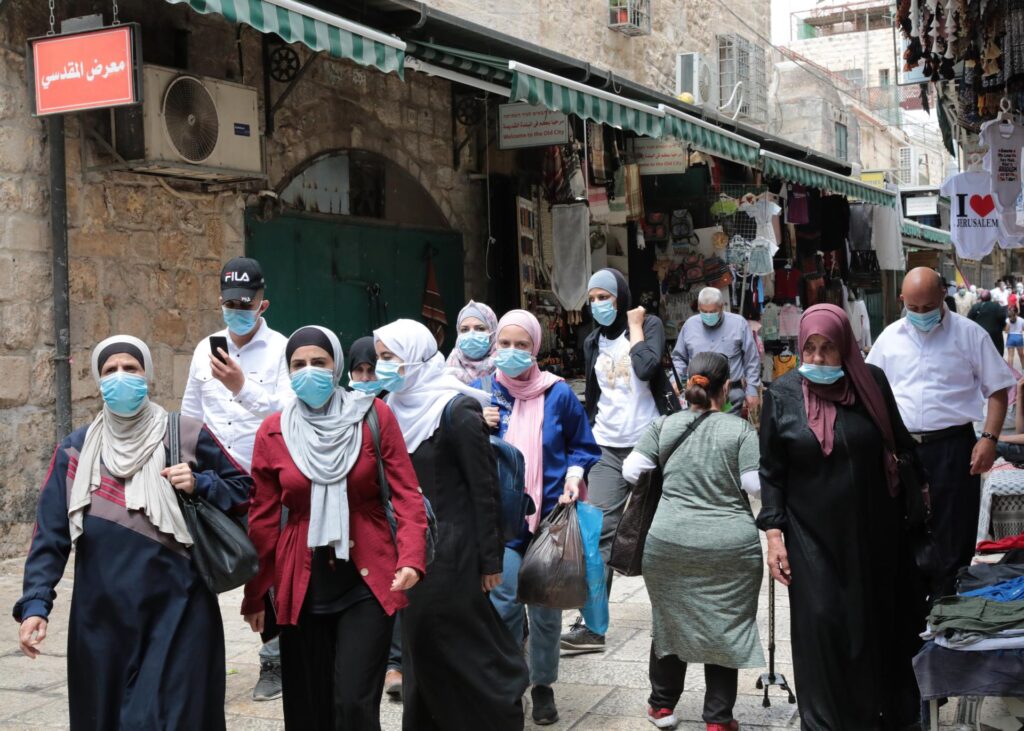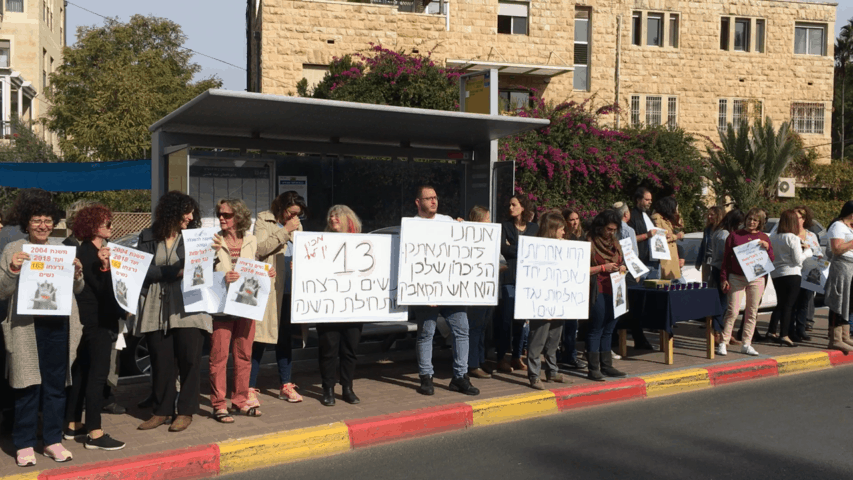Poverty, motherhood and emotions
Dr. Sinyal Athamneh | 01.02.2022 | Photo: Unsplash

Insecurity, self-doubt, shame, guilt and anxiety – these are emotions reserved for members of the working class. Women from the working class relate to these emotions as an inseparable part of their real or imagined encounters with middle-class women and their judgmental class gaze, which negates all aspects of their behavior and especially their concept of maternal responsibility.
Emotions are commonly perceived as natural and universal. But actually, a central mechanism of reproducing the class structure is the differential distribution of emotions. When women experience class-allocated emotions the result is their inability to feel at ease with themselves, knowing that others are critical of them.
Promising a better future
In her doctoral thesis, Dr. Sinyal Athamneh examined the intergenerational transfer between Arab Palestinian mothers and daughters living in poverty in Israel, in the context of the meanings attributed to the girls' working for pay during high school, acquiring education and marriage. One of her research questions asked how mothers apply their emotional resources to avoid the reproduction of a life of poverty and deprivation and promise their children a better future. That is an emphasis that is usually absent from studies on poverty.
From a class relations perspective, feminist researchers propose turning our attention to situations in which working-class women refuse to cooperate with the emotions allocated to them and develop a critical perspective towards those located in privileged positions. The researcher Beverley Skeggs calls the refusal to adapt the perspective that negates them, a “politics of emotion.” With that term, Skeggs analyzes how negative emotions and experiences of embarrassment and shame are pushed away by working-class women: using an alternative moral judgment, these women convert the negative emotions to positive and empowering emotions such as pride, dignity and self-worth, while fending off the class privilege of others. Thus for example Munira, the mother of five children, said she must work hard in cleaning and factories in order to push away her feelings of embarrassment and shame that arise from her husband's debts:
I work. I don't just work, I work myself to pieces! You know why? So that they don't come knocking on my door and asking for money. It’s very hard for me that the neighbors see and hear that we owe money. No, I won’t have it. I try as much as I can to maintain my and my children's dignity, to show that we manage and lack nothing.

Practices of motherhood
The study findings indicate that working-class Palestinian Arab mothers subvert social norms in an effort to extract themselves from a reality of exclusion and economic deprivation. One example of the practices employed by the mothers refers to accumulating emotional capital for their daughters by monitoring and showing commitment toward school. For instance Amira, a mother of six, describes how she tries to transfer accumulated emotional capital to her daughter by emphasizing the importance of education through conversations with and monitoring of the school:
You see Nisrin (her daughter), she's in high school now. Everybody at school knows me and I follow her school grades and her matriculation grades. There is no way she’ll finish without matriculation and a certificate and not go on to university. What would she be in the future without a certificate? I sit with her a lot and talk about school, I try as much as possible to encourage her and guide her as much as I can.
Accumulated emotional capital is considered an emotional resource that supports dealing with social and economic challenges and barriers. The research affirms the relevance of the concept in relation to working-class mothers as well, not only middle-class mothers, as was argued in the past. The mothers' involvement with the school helps the girls establish a sense of dignity and self-worth against the school’s and society’s gaze, through accumulated emotional capital. The development of resilience enables the girls to cope more effectively with the school system.
The importance of education
Another process is resistance to the concept of benevolent sexism, which arises from structural aspects of the relations between men and women, and describes women as pure creatures in need of protection, with marriage at a young age as the resulting solution. The mothers in the study, some of whom do not even have a full high school education, work against this perception by emphasizing the importance of education as a defense mechanism against the uncertain future. This mode of action undermines the community's expectation that views girls' marriage as a necessary step to establish respectability. The mothers emphasize and justify to the girls the importance of education, in such a way that reinforces their chances of delaying marriage. The actions the women take within the social and cultural sphere shape their subjectivity, which is transferred to their daughters in the form of emotions, conceptions and identifications.
The concept of political subjectivity, which we work with as part of the research group A "Toolbox" for Feminist Political Subjectivities, at the Van Leer Jerusalem Institute, enables us to understand how the mothers' practices, at the intersection of class, gender and ethno-nationality, are directed at creating a sense of value and respectability and rejecting emotions of embarrassment and shame in the development of their and their daughters' position of subjectivity.
A segment from the series “Near/Far” which participated in the Incubator for Documentary Filmmakers. creators: Ayelet Bechar, Ahlam Canaan and Nicholas Jacob (from 08:07 to 10:39)
Conclusion
This study sheds a spotlight on the relationship dynamic between Palestinian Arab mothers in Israel and their high school-aged daughters. The study highlights the relationship between mothers and daughters living in poverty as a vital relationship based on mutual dependence, responsibility and morality, as aspects that constitute political subjectivity. This provides a basis for thinking towards political action on the policy level, which can lead to change in the familial and social circles, if the required resources are made available to the mothers so that they can realize their children's personal and academic potential.
Further details of the study were presented at an event held at the Van Leer Jerusalem Institute at the beginning of the school year, Beyond the Dress Code: A Feminist Schoolbag for the Beginning of the school Year
Written by Dr. Sinyal Athamneh, the Program for Gender Studies, Bar Ilan University, a participant in the research group “A "Toolbox" for Feminist Political Subjectivities” at the Van Leer Jerusalem Institute.




